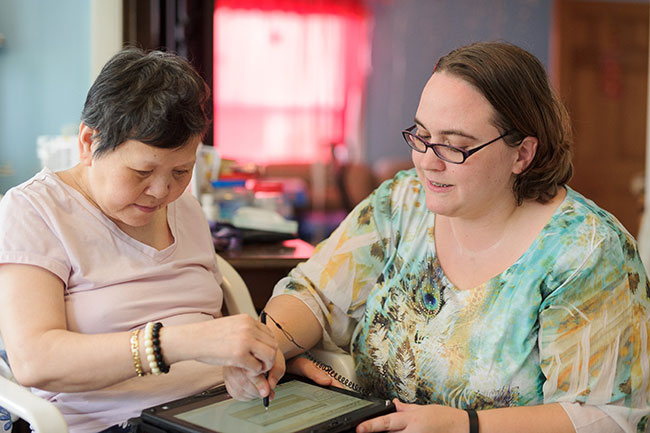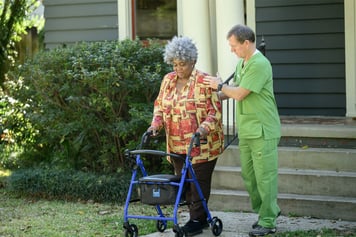If you’re caring for an ailing family member or friend, you’re not alone. Today in the United States, more than one in three Americans find themselves in the same position. The daily responsibilities, combined with the emotional strain of caring for a loved one, can quickly become overwhelming and even adversely affect your health.
[action 1]
Follow these tips to help ease your burden so you can live a happier and healthier life as a caregiver:
1. Stay organized.
Keep detailed lists and instructions for administering medications, dressing wounds, and working medical equipment. Ask a health care professional to demonstrate tasks for you and work with you to make sure the care is being provided correctly.
2. Be prepared for changes.
Individuals with a diagnosis like dementia or Alzheimer’s can display challenging behaviors such as anger, agitation, or aggression. Remember first that it is the disease, not the person. Work with your health care provider on what to expect either physically or mentally. Ask questions.
3. Take your time.
Rushing your loved one through an activity could take away their sense of independence, causing them to become depressed and possibly cause an injury.
4. Take a break or arrange for support.
Research community resources and take time for yourself. Consider adult day care, chore workers, home delivered meals, etc. to help relieve the physical stress and give yourself a break.
5. Know that you are not alone.
Contact your county to find out what services are available through your Area Agency on Aging, the Veterans Administration or other senior services provided based in your community.
6. Eat right and exercise regularly.
Taking care of your own health will help you provide better care for your loved one.
Is Home Health the Answer?



